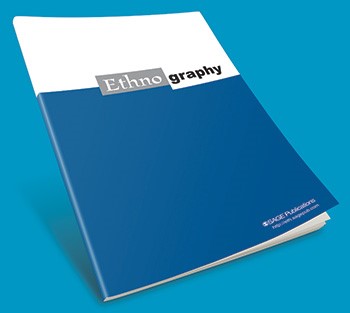Labour of love: Secrecy and kinship among Ghanaian-Dutch and Somali-Dutch in The Netherlands
 This paper examines the productive role of secrecy in the nexus of transnational mobility, kinship, and intimate relations among Ghanaian-Dutch and Somali-Dutch in the Netherlands. Whereas secrecy is typically understood as one person concealing knowledge from another, implying the latter’s passivity, the authors argue that secrecy depends on mutually constitutive interactions. Secrecy is explored as the result of an interaction between those who obscure knowledge in creative ways and those who maintain a not-knowing. The paper analyses how people negotiate moral expectations regarding sexuality, respect, and loyalty, while also manoeuvring to fulfil their personal aspirations. Especially in kinship relations, when people are bound to each other by moral and social obligations, the management of secrecy often makes people mutually dependent. Secrecy is revealed as skillfully choreographing relations by the ebb and flow of information where kinship, respect, or love and (not-) knowing reinforce another.
This paper examines the productive role of secrecy in the nexus of transnational mobility, kinship, and intimate relations among Ghanaian-Dutch and Somali-Dutch in the Netherlands. Whereas secrecy is typically understood as one person concealing knowledge from another, implying the latter’s passivity, the authors argue that secrecy depends on mutually constitutive interactions. Secrecy is explored as the result of an interaction between those who obscure knowledge in creative ways and those who maintain a not-knowing. The paper analyses how people negotiate moral expectations regarding sexuality, respect, and loyalty, while also manoeuvring to fulfil their personal aspirations. Especially in kinship relations, when people are bound to each other by moral and social obligations, the management of secrecy often makes people mutually dependent. Secrecy is revealed as skillfully choreographing relations by the ebb and flow of information where kinship, respect, or love and (not-) knowing reinforce another.
This article has appeared in Ethnography, Volume 21, issue 3, page(s): 394-412. https://doi.org/10.1177/1466138120938808
Author(s) / editor(s)
About the author(s) / editor(s)
Amisah Bakuri is a PhD candidate in Anthropology at the Amsterdam Institute of Social Science Research (AISSR), University of Amsterdam.
Rachel Spronk is associate professor at the anthropology department of the University of Amsterdam.
Rijk van Dijk is Professor of Religion in Contemporary Africa and its Diaspora at the African Studies Centre, Leiden University

